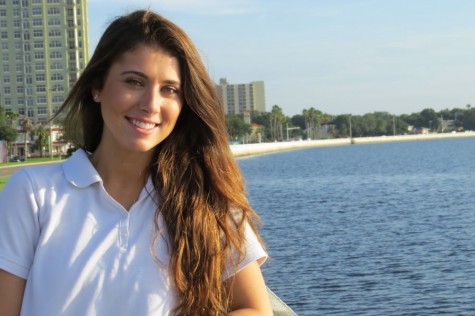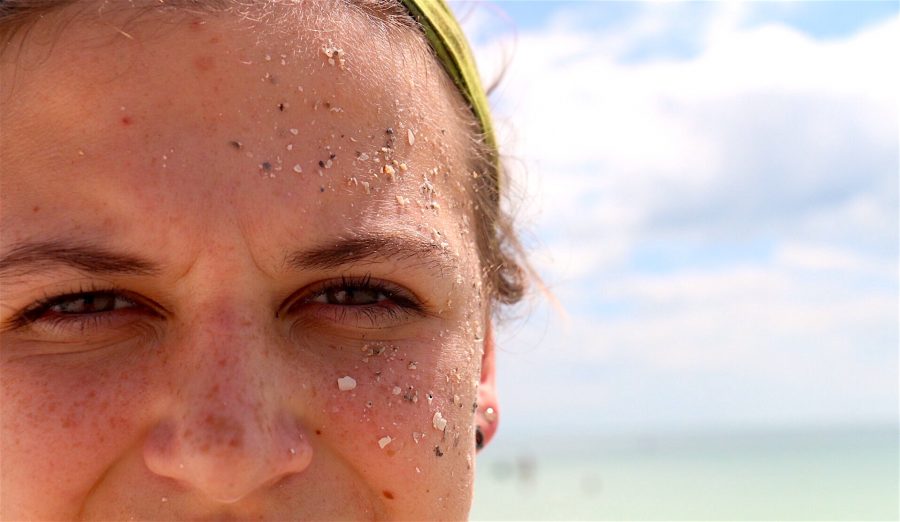The Science Behind Freckles
Credit: Gabi Vivero (used with permission)
Senior Gabi Vivero claims she “loves her freckles.” Vivero continues, “whenever I put on makeup, I always try to show them as much as possible; I never cover them up.” Learn to love and embrace your freckles rather than feel insecure about them!
You know those adorable little natural spots you get on your face after you’ve been in the sun for a while? Freckles? Yeah, well did you know that freckles are a trend of their own on Instagram and that freckled women and men are major trendsetters right now? Some of the most famous make-up artists in the world even encourage others to draw them on for a more unique, youthful look. So, if you’re lucky enough to have them naturally, embrace them!
You’re probably feeling pretty smug right now about your freckles, but did you know that they don’t just exist to make you stand out? There’s actually a pretty interesting reason behind why some have them. Freckles are produced by cells called melanocytes, which form small areas of skin that have an increase in melanin — don’t fret! Melanin is just the protein that produces the color of your skin, eyes and hair, so when more develops, you’re left with freckles. Did I just answer your question about why you always return from summer vacation with freckles?

Senior Bryanna LaRussa shares her thoughts on her freckles exclaiming, “One day I hope they all combine with each other so I become tan.”
When discussing the appearance and diversity of freckles, senior Jaime Jurado remarks, “I think freckles are so cute and make a person unique. They’re like little angel kisses.”
However, senior Grace Alexander slightly disagrees with that statement, adding, “I think they are cute on other people but I don’t like mine on me.”
Another interesting fact about freckles is that they aren’t a sign that you’ve been in the sun too much: they actually double as a natural sunscreen, shielding your skin from the sun’s harmful UV rays (but don’t go throwing away the SPF 50! That’s always a necessity.) Something you may notice is that they come and go depending on your level of exposure to the sun, which is why they fade during the winter. Now that you’re an expert on freckles, be sure not to get them confused with liver spots, which stay put regardless of your sun exposure.

“My freckles used to fade in the winter, but since I’ve moved to Florida I have them year round” comments senior Caroline Yount. “They don’t really bother me, they’re kind of just there” she concludes.
So, if you’re ever feeling self-conscious about your beauty marks, just remember that your body is pretty amazing and composed of ALL the science!

Lily Oliva is an Academy senior, second year journalist and Editor in Chief for the Achona. This school year is most definitely going to put Lily's desire and...



